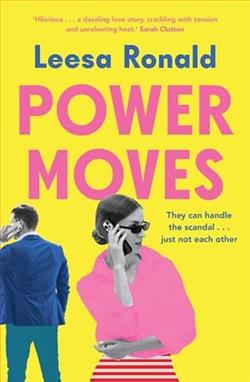Page 65 of The Last Days of Marilyn Monroe
Marilyn appears at the premiere in a white satin mermaid-tail gown, an evening variation on her most memorable costume in the film. Fans clamor for a glimpse, one getting close enough to brush one of Marilyn’s chandelier earrings out of her ear. Arthur Miller, elegant in black tie, replaces the bauble. Photographers never stop shooting, trailing the stars to a gala champagne supper-dance at the Waldorf Astoria.
The film is a light amusement, critics agree, though many lavish Marilyn’s performance with praise. “Her best cinema effort” proclaims theLos Angeles Times. TheNew York Postsays, “Marilyn Monroe has never seemed more as a person and as a comedienne.”
Despite the issues during shooting, the film is a financial success. “When you look at the film,” Miller’s sister Joan Copeland notes, “it is apparent who won the battle, & it wasn’t Olivier.” Olivier himself agrees, admitting, “Maybe I was tetchy with Marilyn and with myself because I felt my career was in a rut. Her personality was strong on the screen. She gave a star performance.” From a distance, the director can admit, “I was good as could be; and Marilyn! Marilyn was quite wonderful, the best of all. So. What do you know?”
To her stepchildren, twelve-year-old Jane and ten-year-old Robert, Marilyn writes warm, funny letters in the voices of Sugar Feeny, the family cat, and Hugo the Basset Hound.
“Hugo” confesses to Bobby: “I made a mistake and I am sorry but I chewed up one of your baseballs. I didn’t mean to. I thought it was a tennis ball and that it wouldn’t make any difference but Daddy and Marilyn said they would get you another one.”
Before they married, Miller wrote Marilyn of the blissful domesticity he imagined they’d share.
“How happy I will make you! What beautiful children I will give you!”
Those are Marilyn’s dreams, too.
She’s prayed on it overDaily Prayers,the book she received from the Avenue N Jewish Center after her conversion.
But faith can’t cure her chronic endometriosis. Neither can the surgery she underwent back in 1954, days before she moved to New York. The doctor had cautioned her that endometriosis scarring increased the chances of an ectopic pregnancy occurring outside the uterus. Marilyn is not afraid to take that risk, and she is delighted to become pregnant again in the summer of 1957.
Miller is more tempered in his joy. “The doctor, having administered a series of treatments over a period of weeks, had confirmed that she was pregnant, but could still not rule out the possibility of an ectopic pregnancy,” he says. “But she was deaf to this cautionary tone. A child of her own was a crown with a thousand diamonds. I did all I could to throw myself into her anticipatory mood.”
To Hedda Rosten, Marilyn confides: “I think I’ve been pregnant for about three weeks or maybe two. My breasts have been too sore to even touch—I’ve never had that in my life before—also they ache—also I’ve been having cramps … I did not eat all day yesterday—also last night I took 4 whole amutal sleeping pills—which was by actual count 8 little amutal sleeping pills.
“Could I have killed it by taking all the amutal on an empty stomach? (Except I took some sherry wine also).
“What shall I do? If it is still alive, I want to keep it.”
On August 1, Miller is at his writing desk when he hears screams from the garden. He rushes to Marilyn’s side. Her pain is so severe that she briefly loses consciousness.
In the back of the ambulance, she gives way to her agonizing sorrow. All she wants is a family. All she has ever wanted is family. Someone to love. Will she never be allowed that?
Newspapers report: “MISS MONROE was rushed 100 miles to the hospital Thursday afternoon. A hospital spokesman said she was in great pain during the operation and was given a blood transfusion.
“On her admittance to the hospital Thursday afternoon, Miss Monroe’s doctor said she was ‘five or six weeks pregnant’ and that her baby was expected ‘around the end of March.’”
The doctors operate, and confirm it was a non-viable ectopic pregnancy. They assure her that she can have more babies. But as Miller tenderly oversees her recovery, he sees how far Marilyn has fallen. Sometimes she cries. Sometimes she sleeps. Mostly, she looks blankly at the wall.
“She lay there sad beyond sadness,” Miller observes. “And there were no words anymore that could change anything for her.”
Miller has sold his original property on Tophet Road in Roxbury, Connecticut, and purchased land enough for an expansive country estate.
On a spread of over three hundred acres, Miller and Marilyn seed fruit trees and a pine forest. A house built in 1783 still stands, with its massive wood-beamed ceilings.
“All our friends agreed the land was beautiful,” Marilyn tells a columnist, “but they said the house was just uninhabitable. I looked at it, and thought how it had been standing there, weathering everything for more than 180 years. And I just hated the idea of its being torn down or even left unoccupied.”
She contacts the famed architect Frank Lloyd Wright and drives the ninety-year-old all the way from Manhattan to view the property.
“Ah, yes, the old house. Don’t put a nickel in it,” the architect immediately pronounces. But his plans to construct a new home in the side of the hill would require, Miller estimates, “heavy construction on the order of the Maginot Line.”
Instead, they embark on a modernizing renovation that includes a new writing studio for Miller. They keep company with Hugo the Basset Hound, along with an expanding menagerie, including a mongrel dog called Cindy and Butch the talking parakeet, who repeats, “I’m Marilyn’s bird. I’m Marilyn’s bird.”
But this bucolic life fails to keep her anchored in the physical world.
To temper her wild emotional swings, she drinks champagne and vodka in the morning with whatever pills she needs. Sometimes she cracks open the capsules and pours the powders directly into her drink; other times she sprinkles them under her tongue. At night, she pricks holes into the casings of her barbiturates to speed the effects.
When Miller walks into the sitting room to find Marilyn slumped on the sofa, he’s not immediately sure that she’s overdosed.
“There’s no words to describe her breathing when she is in trouble with pills,” he writes. “The diaphragm isn’t working. The breathing is peaceful, great sighs. It took me an awfully long time before I knew what was coming on.”















